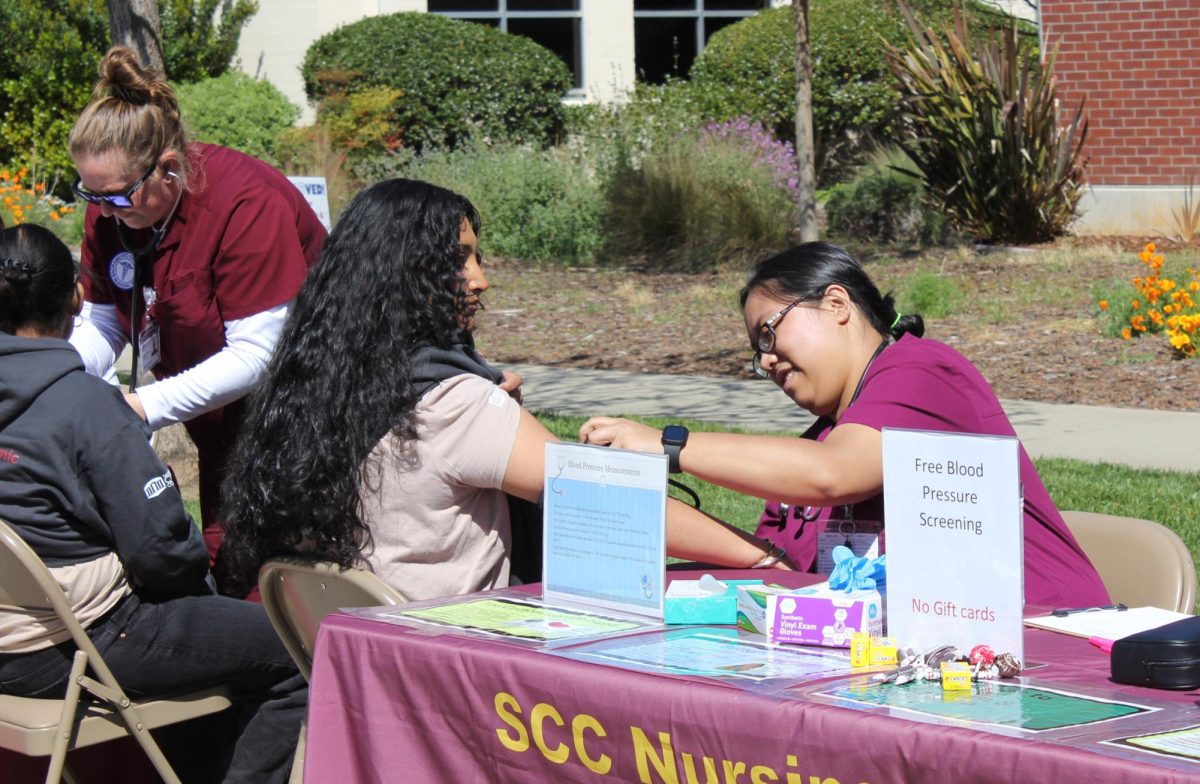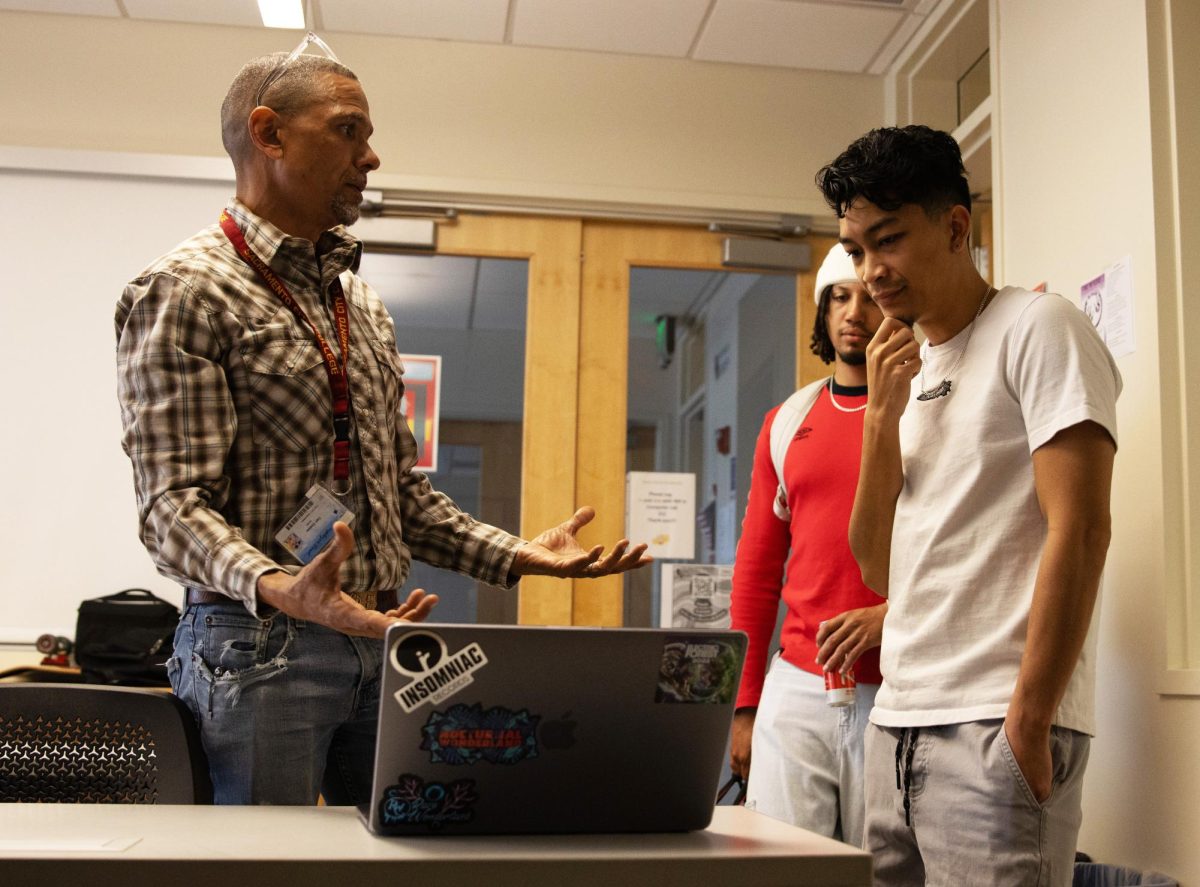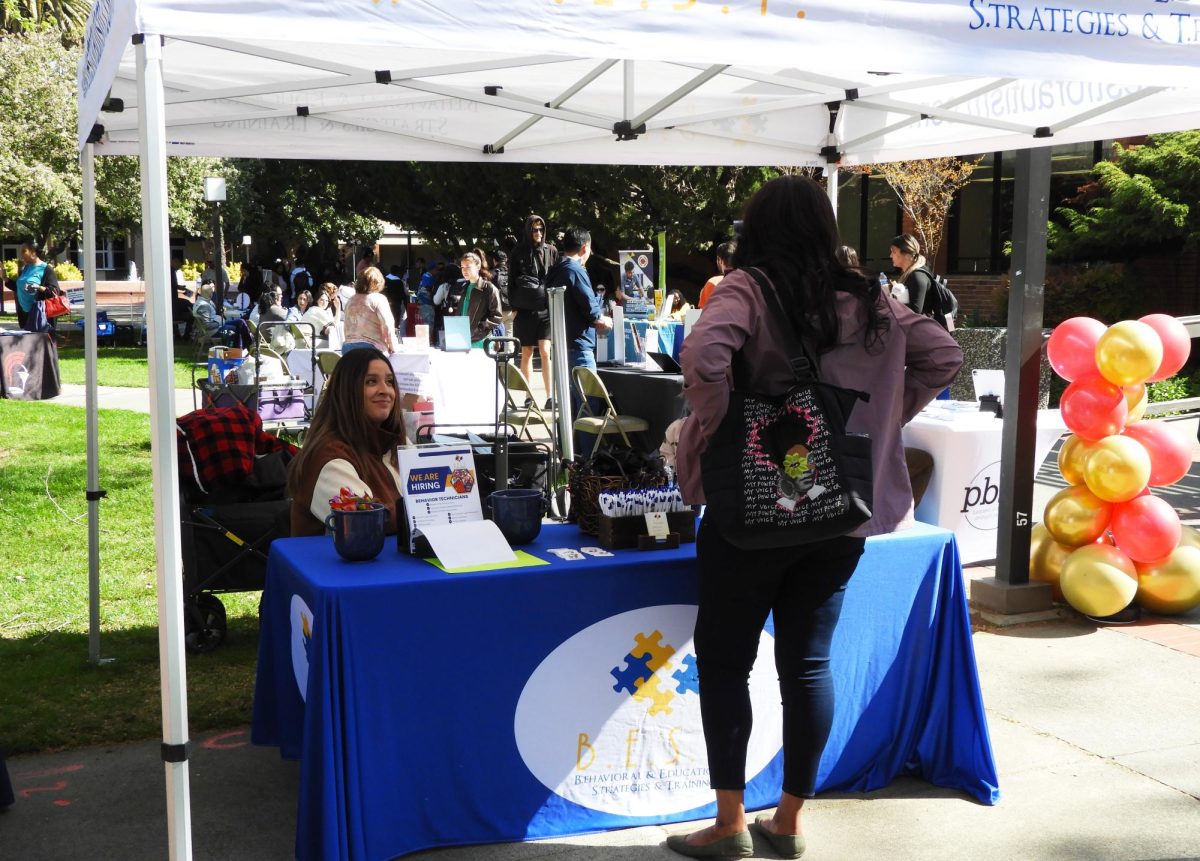Sara Smith says she has a simple request.
“We should be treated like human beings,” says Smith, a history professor at American River College. “We should have more humane policies that allow us to take paid time off to care for the people we love most in the world without being distracted, without having to work through the pain.”
Over two years ago, Smith’s mother was diagnosed with breast cancer that had metastasized to her brain. She was given six months left to live. During that time, Smith transitioned to fully online teaching to allow for more flexibility. She would then drive from the Sacramento area to Los Angeles every couple weeks to help care for her dying mother.
“I was always distracted when I should have been bonding with her. … Instead I was trying to get my grading done,” Smith says.
A group of Los Rios Community College District faculty are advocating for changes to their paid-leave policies. They are seeking 12 weeks each of paid caregiving, parental and serious illness leave, as well as child and family care subsidies each semester, along with some additional requests. As of press time, 684 signatures have been collected for their petition for improved leave benefits — 316 still short of their goal.
The petition organizers say current leave policies are insufficient to accommodate the different situations that can arise, forcing faculty members to use accumulated sick leave to supplement their time off, Smith says.
According to Lori Beccarelli, a nutrition professor at American River College, faculty receive a max of 10 days of sick leave off during their 10-month work contract. In the instances where faculty members get sick and have used all their accumulated sick leave on parental or family caregiving leave they are still required to come into work.
“You know, students have sick teachers coming in, but what am I supposed to do? I don’t have the time to take it because I already took it,” said Beccerelli. “So it becomes another problem for us as well. And yeah, so I took my sick leave. I had to exhaust all of it to be able to stay home with my son for six weeks and then I came back with no sick leave. And I just prayed that I didn’t have to take any sick time because I didn’t have anything left to take.”
Beccerelli also says that the insufficient leave policies inadvertently encourage sick teachers who have already exhausted their paid sick days to come into work.
The Los Rios College Federation of Teachers, the Los Rios faculty’s union, is currently negotiating changes to their Collective Bargaining Agreement. Contract negotiations happen every three years and occur between the union and the district. After the contract is finalized, dues paying members of the union vote on it and that contract is then sent to the Los Rios Board of Trustees for their stamp of approval.
“I think we’ve heard loud and clear from our membership that we need to take a hard look at the benefits and leaves that are available to our faculty members, not just for the purposes of parental leave, but for caring for loved ones who may be recovering from serious illness or injury or any number of other areas and you know, our union is absolutely committed to negotiating improvements as much as we can,” said Belina Lum, City College’s union president.
Other faculty members have shared their experiences with the less than ideal family leave policies. “One faculty member was saying when she had her baby, she had her mother in the back of the classroom holding her baby the whole time. So that between classes she can help care for the baby and breastfeed, but basically, right when her baby was born she was back in the classroom,” Smith says.
In a testimonial taken from the Los Rios family workplace justice Instagram account, Christina Aldrich, a psychology professor at Folsom Lake College shares that, “When my daughter was born premature, she was hospitalized for 126 days. Getting paid time off wasn’t easy and I had to involve the union to help me communicate with HR. After my leave, I learned that somehow I had taken 3.11 days of unpaid leave. Because it exceeded three days, I lost my step advancement on the salary schedule. I should have been able to take paid time off to care for my daughter without this stress.”
Beccarelli confirmed that if a faculty member takes more than three days of unpaid leave at this time, they are not able to advance on the salary step for the following year.
Adding to that Beccarelli believes that, “as a society we just don’t share this value of caretaking. … We should understand that our children are our future. We should share the responsibility for caring for them and providing them with the care that they deserve. And our dying loved ones, our aging parents. … They’re human; they deserve to to age and die with dignity and with the ones that they love. And I think that we need to remember as a society that we should all share that responsibility because at some point all of us are going to know somebody that we love that needs to be cared for.”
Michael Serrano Jr., a psychology major at American River College, believes that this can truly have an effect on the way a professor teaches. “From personal experience, I had a professor cancel teaching a whole chapter of the textbook because of stress they had due to a family emergency they couldn’t be there for,” he says. “I felt like I was missing out on an important part of my education that I needed to feel successful as a student. A professor, or a faculty member that is going through a hard time cannot give their full support or attention to students that need it.”
In addition to more paid leave, Smith says that faculty members would also like other benefits such as child care and family care subsidies to offset the high cost of care. “I pay an arm and a leg every month for child care for my one toddler. I can’t imagine if I had more than one kid,” Smith says.
Gabe Ross, LRCCD public information officer, states that, “Under the Board’s direction, the district has a long history of working collaboratively with our labor partners on issues like these, and we are confident that we’ll be able to work together on a fair and equitable solution to this matter.”































